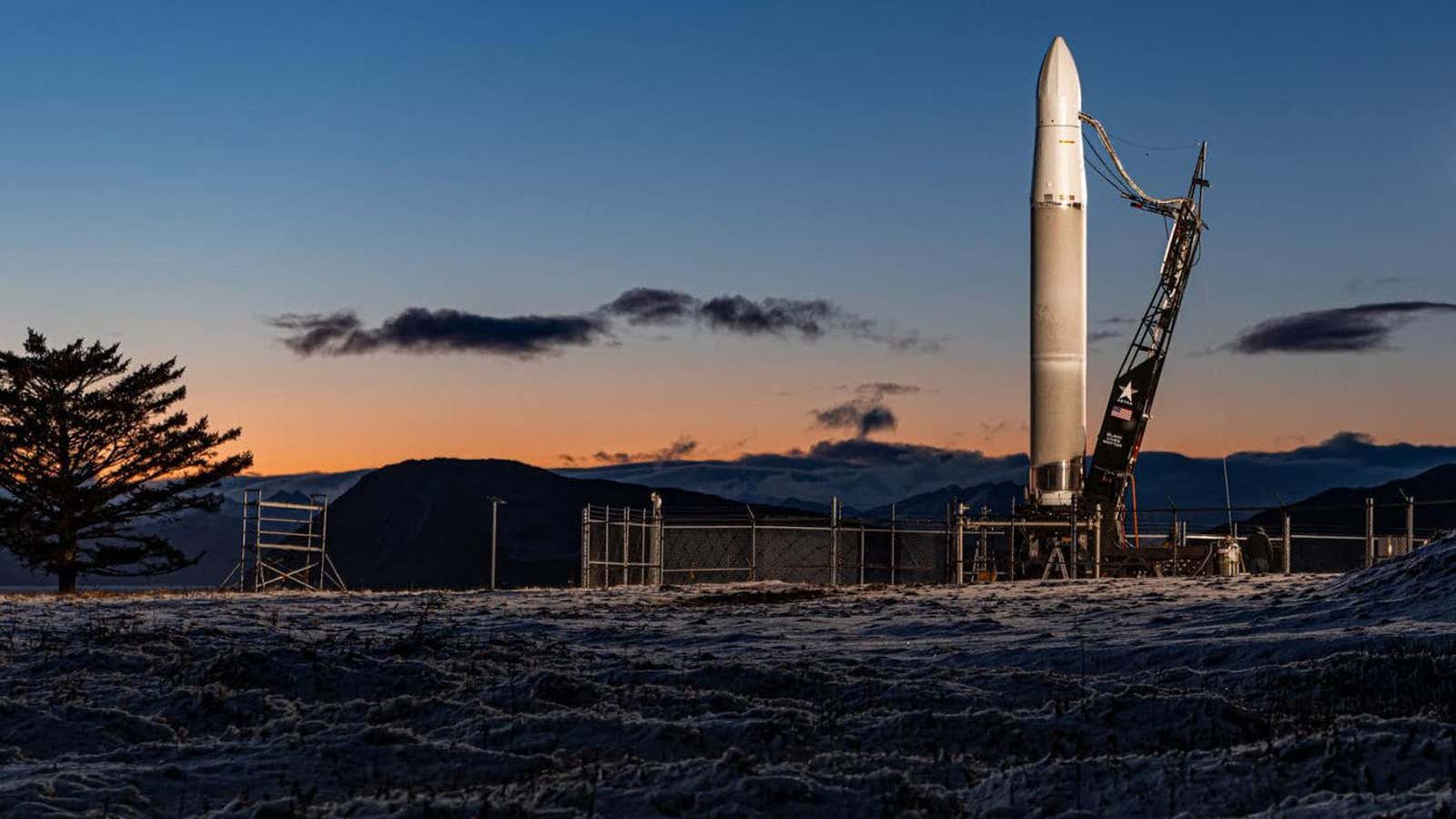It’s not easy making small rockets.
Despite dozens of companies spending hundreds of millions of dollars to develop small satellite launchers in recent years, only two—Rocket Lab and Virgin Orbit—have put any birds on orbit. In recent months, we’ve seen launch attempts by strongly backed companies like Astra and Firefly go awry. Other competitors, like Relativity Space and ABL Space Systems, have yet to make it to the launch pad.
Chris Thompson knows more about building rockets than most people; after fifteen years at Boeing’s space division, he was one of the earliest employees at SpaceX, where he helped develop the company’s rockets, and later worked at Virgin Galactic. After three years as Astra’s chief engineer, Thompson left the company last month. Now, Quartz can report Thompson will be the chief technical officer at Phantom Space, a firm founded to build small rockets, and a direct competitor of Astra.
“Astra is in an interesting kind of evolution right now,” Thompson says of his decision to leave the publicly traded firm, which has plans to become a platform for space entrepreneurs and has set a goal of launching weekly in 2023. “There’s a lot of things on the horizon that…are going to be truly amazing. But…from an operations perspective, there is reality of what physics will allow you to actually go do—not only physics from a mechanical sense, but the physics of how many launches can I really do in a given year?”
Thompson says part of his decision was driven by unfinished business—he played a key role developing SpaceX’s first rocket, Falcon 1, a small launcher that was ultimately taken out of service when the company chose to focus on its larger Falcon 9. The vehicle may have arrived before its time, but now Thompson says the market is ripe for a vehicle capable of delivering 500 kg of payload to orbit. Astra’s current vehicle, which will attempt to fly again at the end of the month, is designed to carry just 150 kg.
Phantom Space has its own unusual history. It was founded by Jim Cantrell, another veteran of the private space world who was an early advisor to Elon Musk. Cantrell founded his own rocket firm, Vector, but it went bankrupt in 2019 after its key backer, the venture fund Sequoia, pulled out following test and production delays. Now, Cantrell says his new firm has raised enough money to build four demonstration rockets that it will launch by 2023. And, he says, the bruises of his previous failure have taught him important lessons about cost discipline.
Cantrell says that he sees his company mainly competing with Virgin Orbit and Astra, and that firms like Rocket Lab, Firefly, and Relativity Space, which aim to build larger rockets for bigger payloads, face more pressure from SpaceX, the leading private rocket builder. “The only secret to being successful in a small vehicle is production rate and flight rate,” he says. For Thompson, that means starting with a simple design and optimizing over time.
One key difference between Vector and Phantom Space is that the new firm has outsourced the production of its propulsion system, the most expensive and difficult part of any rocket. Vector foundered when its in-house rocket engine failed to deliver on time. Instead, Phantom is buying a propulsion system from Ursa Major, a company specializing in rocket engines. Astra, too, has found in-house propulsion work a challenge, and is reportedly purchasing rocket engines from its competitor, Firefly.
Thompson’s job will be integrating that propulsion system into a rocket, dubbed Daytona, that can be operated simply and reliably. It’s a change in approach from SpaceX, which pioneered vertical integration across all aspects of its spacecraft.
“During the SpaceX adventure, we had to do it all ourselves, there was nobody out there doing the things that we needed have done, or if they were, they were tied to the big aerospace mindset, the big aerospace cost structures—that’s shifted,” he explains, saying that the ecosystem created by SpaceX’s success has allowed new suppliers to emerge with cheaper, more effective components.
Now, he’ll just have to put them altogether to get one last rocket off the ground.
A version of this story originally appeared in Quartz’s Space Business newsletter.
